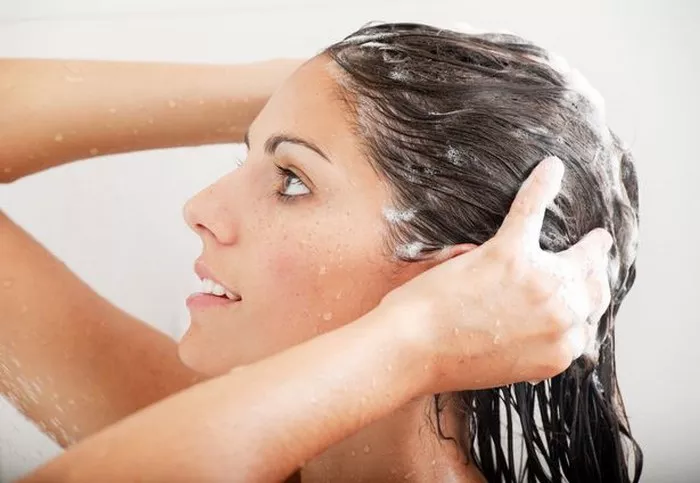Dry scalp can be an uncomfortable and sometimes embarrassing condition that affects many individuals. It can lead to itching, flaking, and irritation, causing discomfort and self-consciousness. Fortunately, there are numerous products available to help manage and alleviate dry scalp symptoms. In this article, we will delve into the causes of dry scalp, provide recommendations for effective products, highlight key ingredients to look for, offer application tips, discuss lifestyle factors, provide professional advice, explore alternative treatments, offer prevention tips, and address frequently asked questions.
Understanding Dry Scalp
Dry scalp occurs when the skin on the scalp loses moisture, leading to flakiness, itching, and irritation. Unlike dandruff, which is caused by excess oil production and a buildup of yeast, dry scalp is primarily due to dehydration and lack of moisture. Environmental factors such as cold weather, indoor heating, and hot showers can exacerbate dryness, as can certain hair care practices such as overwashing or using harsh products.
Product Recommendations
1. Moisturizing Shampoos: Look for shampoos specifically formulated for dry scalp, such as those containing hydrating ingredients like coconut oil, shea butter, or glycerin.
2. Conditioners: Choose a moisturizing conditioner to hydrate the scalp and hair. Consider leave-in conditioners for added moisture between washes.
3. Scalp Oils: Natural oils such as argan oil, jojoba oil, or tea tree oil can help moisturize and soothe the scalp. Apply directly to the scalp and massage gently.
4. Medicated Shampoos: For more severe cases, medicated shampoos containing ingredients like coal tar, selenium sulfide, or ketoconazole can help reduce inflammation and flaking.
5. Exfoliating Treatments: Use exfoliating scalp treatments with ingredients like salicylic acid or alpha hydroxy acids to remove dead skin cells and promote cell turnover.
Ingredients to Look For
1. Tea Tree Oil: Known for its antifungal and antibacterial properties, tea tree oil can help combat dryness and itchiness.
2. Salicylic Acid: Helps to exfoliate the scalp, removing dead skin cells and promoting a healthier scalp environment.
3. Hydrating Components: Look for ingredients such as hyaluronic acid, aloe vera, or panthenol, which help to attract and retain moisture in the scalp.
Application Tips
1. Follow the instructions on the product labels carefully.
2. Massage the shampoo or treatment into the scalp gently using your fingertips, avoiding harsh scrubbing.
3. Allow medicated shampoos or treatments to sit on the scalp for the recommended amount of time before rinsing thoroughly.
4. Use a wide-tooth comb to distribute conditioner evenly through the hair and scalp.
5. Avoid using hot water, as it can strip the scalp of its natural oils. Instead, opt for lukewarm or cool water when washing your hair.
Lifestyle and Environmental Factors
1. Hydration: Drink plenty of water to hydrate the body from the inside out, which can help improve overall scalp health.
2. Healthy Diet: Incorporate foods rich in omega-3 fatty acids, vitamins, and minerals, such as fish, nuts, fruits, and vegetables, to nourish the scalp and promote hair health.
3. Protective Styling: Minimize exposure to harsh environmental elements by wearing hats or scarves in extreme weather conditions.
4. Limit Heat Styling: Reduce the use of heat styling tools such as blow dryers, straighteners, and curling irons, as excessive heat can contribute to scalp dryness.
Professional Advice
Dermatologists and hair care professionals recommend consulting with a healthcare provider or dermatologist if dry scalp persists despite using over-the-counter products. They can provide personalized recommendations and prescribe stronger treatments if necessary.
Alternative Treatments
1. Apple Cider Vinegar Rinse: Dilute apple cider vinegar with water and use it as a final rinse after shampooing to balance the scalp’s pH and reduce itchiness.
2. Aloe Vera Gel: Apply pure aloe vera gel directly to the scalp to soothe irritation and hydrate dry skin.
3. Coconut Oil Massage: Massage warm coconut oil into the scalp and leave it on for several hours or overnight before washing it out to moisturize and nourish the scalp.
Prevention Tips
1. Regular Scalp Massages: Incorporate scalp massages into your hair care routine to stimulate blood flow and promote natural oil production.
2. Avoid Harsh Chemicals: Choose gentle, sulfate-free shampoos and hair products to avoid stripping the scalp of its natural oils.
3. Protect from Sun Exposure: Wear sunscreen or a hat to protect the scalp from harmful UV rays, especially if you have thinning hair or a receding hairline.
FAQs
Is dry scalp the same as dandruff?
No, dry scalp is caused by a lack of moisture, while dandruff is often due to excess oil production and yeast overgrowth.
Can stress cause dry scalp?
Yes, stress can contribute to dry scalp by disrupting hormone levels and impairing the skin’s barrier function.
How often should I wash my hair if I have dry scalp?
It’s best to wash your hair no more than 2-3 times per week to avoid stripping the scalp of its natural oils.
Can I use hair styling products if I have dry scalp?
Yes, but opt for products that are lightweight and non-greasy to avoid weighing down the hair and exacerbating dryness.
In conclusion, managing dry scalp requires a combination of effective products, proper application techniques, lifestyle adjustments, and professional guidance. By understanding the underlying causes and implementing targeted solutions, individuals can achieve a healthier scalp and alleviate discomfort associated with dryness.


